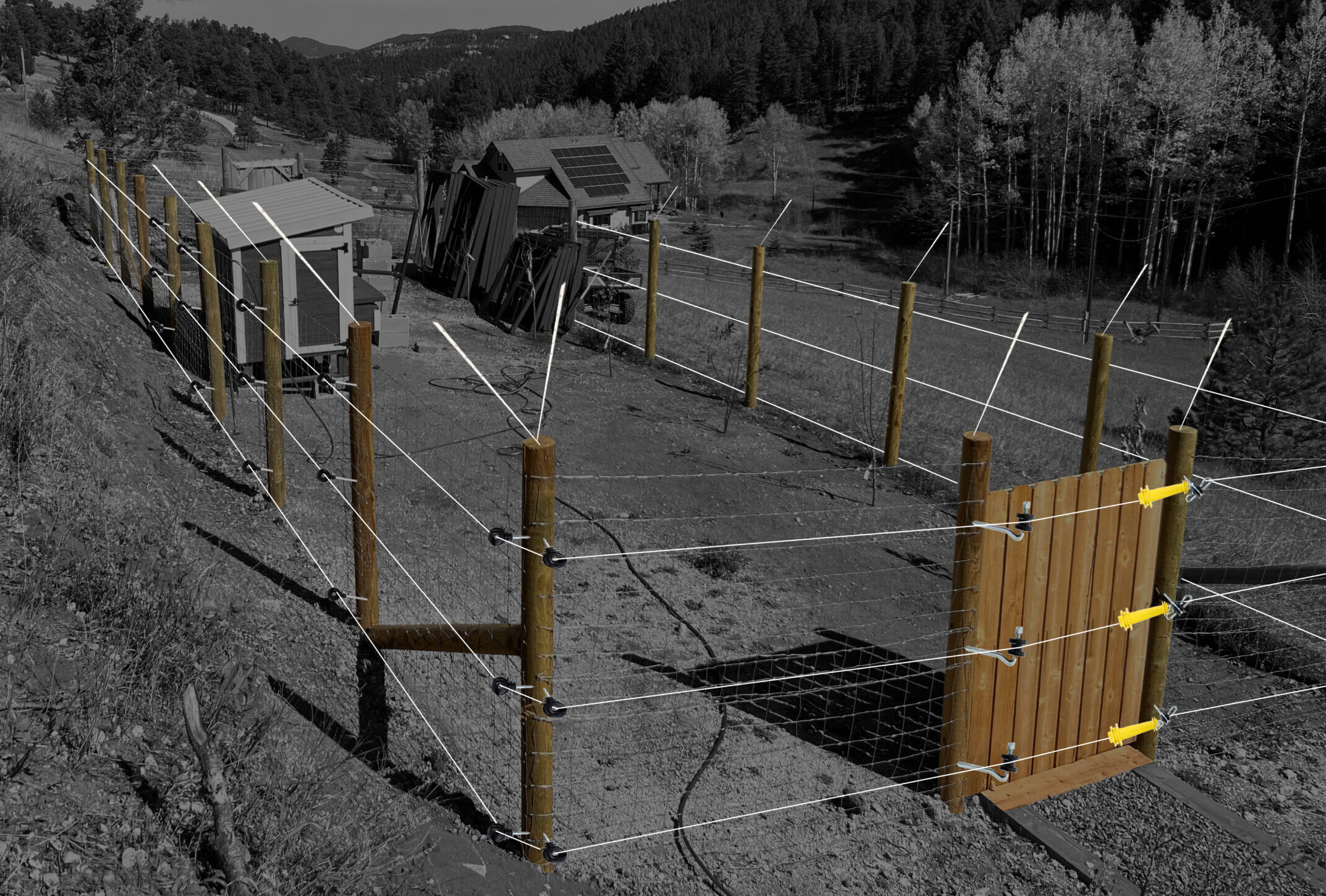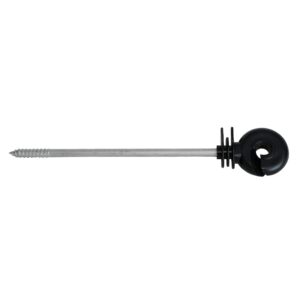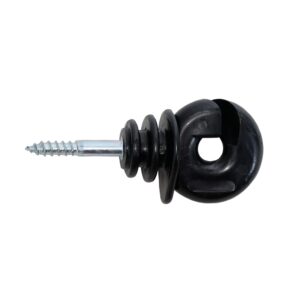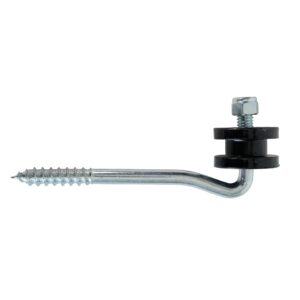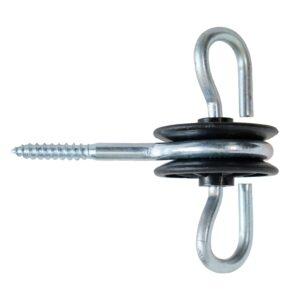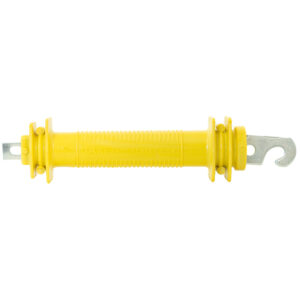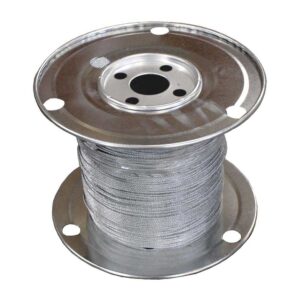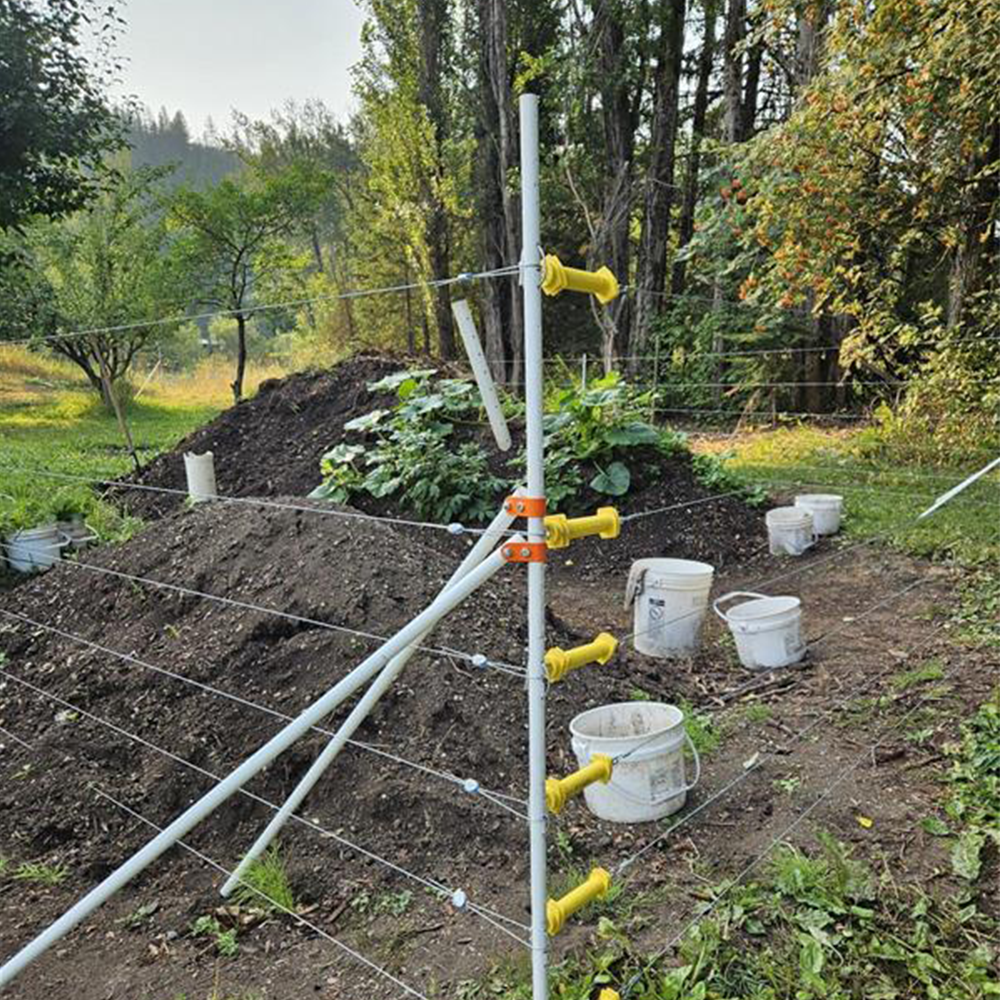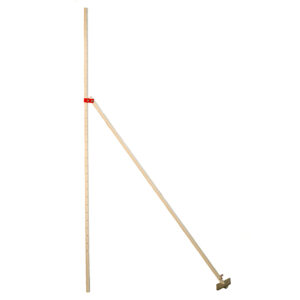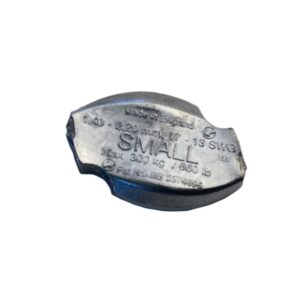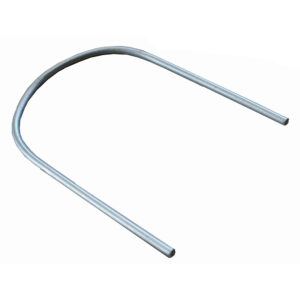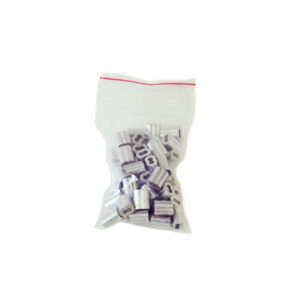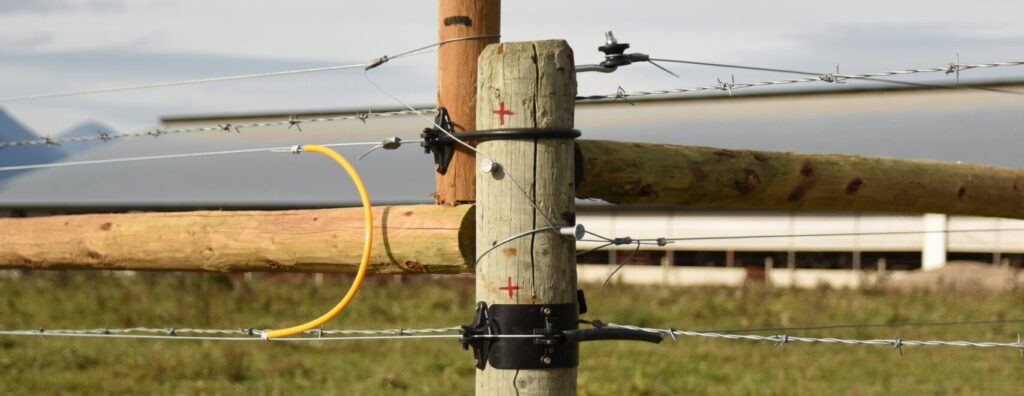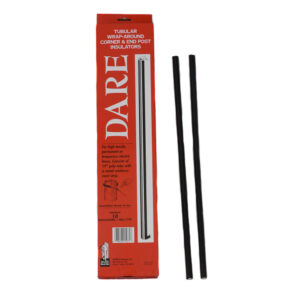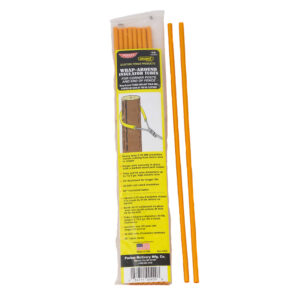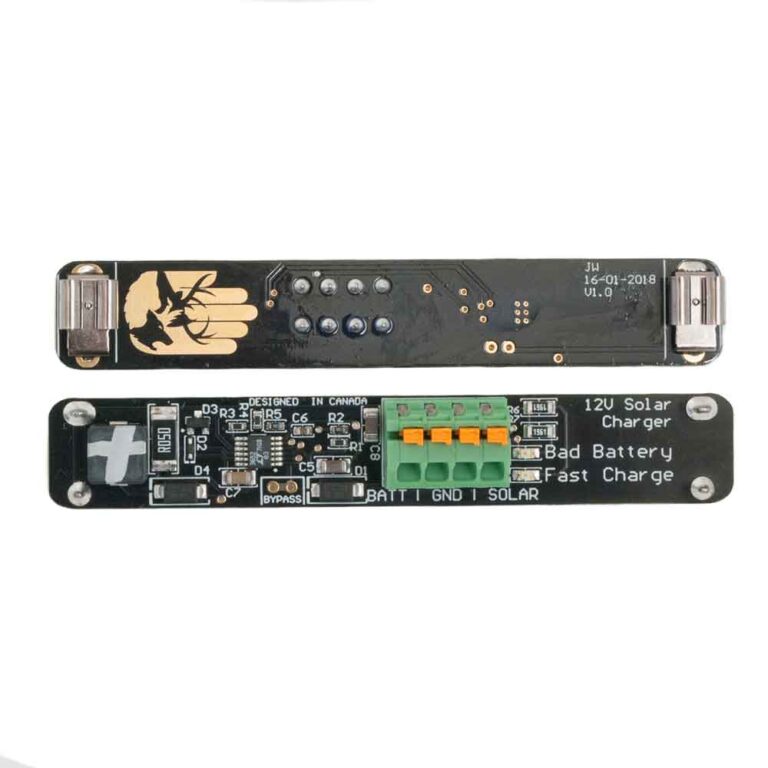Insulators are a key element of an electric fencing system. Their primary role is to prevent the electrified wire from touching fence posts and shorting. Insulators also hold the wires in place and maintain wire spacing which is key for effectively deterring wildlife.
Because insulators are generally made out of a non-conductive material, like rubber or plastic, insulators ensure that the electric current stays within the fence line. Delivering the maximum charge to the animal is key in an effective electric fence, insulators are a huge part of achieving that goal.
An insulator should be placed on each post, on each wire of a fence to ensure that wire spacing is maintained and to limit short.
1. Why do I need Electric Fence Insulators?
Preventing Shorts
Insulators keep the electric current contained within the wire, stopping it from grounding out through fence posts, which would otherwise short circuit the system and reduce its effectiveness.
Maintaining Voltage
Insulators help maintain high voltage in the wire, which is necessary for the fence to be an effective deterrent.
Maintaining Wire Spacing
While insulators stop voltage from being lost to conductive materials such as fence posts and vegetation, they also help maintain proper wire spacing on a fence.
2. Where are Insulators Installed?
The example below, demonstrates the use of insulators on an existing chicken coop fence. It is important to keep in mind that each fence project comes with a unique set of challenges and scenarios, requiring customized solutions.
The image below demonstrates and overview of installation points. Hover over the green dots to display the different insulators.
This photo was taken during the construction of the fence. We have added graphics to illustrate a wood fence configuration. If you have any questions about fencing projects of your own, please contact info@margosupplies.com
2. Where are Insulators Installed?
The example below, demonstrates the use of insulators on an existing chicken coop fence. It is important to keep in mind that each fence project comes with a unique set of challenges and scenarios, requiring customized solutions.
The image below demonstrates and overview of installation points. Hover over the green dots to display the different insulators.
This photo was taken during the construction of the fence. We have added graphics to illustrate a wood fence configuration. If you have any questions about fencing projects of your own, please contact info@margosupplies.com
Fence Information:
Reason for Fence:
Predator fence to protect a chicken coop
Fence Material:
Page wire fence with wooden posts
Insulators: Wood post insulators
For predator fencing, the insulators are positioned on the OUTSIDE of the fence.
Additional Notes:
- Corners: braced with a diagonal post, corners bear the most strain as the wire pulls in different directions, this is why we used two ring insulators. Alternatively, Pin-Lock Wrap Around Insulators are a good option for corner posts, however, in this case, we wanted to create a bit of distance between the existing page wire and the electrified fence to prevent shorts. This is an accommodation for electrifying existing fences.
- Diagonal outrigging: Installing Fiberglass Line Posts on the top of the fence at an angle interferes with animals depth perception and adds height to the existing fence. This deters animals from attempting to jump/climb over the gate. Top wire was not installed at the time of this photo.
3. What Insulators are Best for my Fence?
Insulators are essential yet compact components that ensure an electric fence operates safely and efficiently. Whether for permanent or temporary installations, every fence requires insulators to be an effective electric fence. The type of insulator depends on the type of fence you are trying to electrify.
We carry insulators for:
- Wood
- Fibreglass
- Chainlink
- T-posts
All of our insulators are made of high-quality durable plastic rubber or metal. While materials like porcelain are also an option, we prioritize products that are both easy to install, and long-lasting. We offer versatile solutions to minimize the risk of errors that could allow animals to breach the fence.
Remember that any shortcuts in electric fencing will result in teaching animals how to exploit future fencing improvements. Bears are especially good at finding weaknesses in fencing, including improperly insulated fences. We recommend ALWAYS using high-quality insulators to maintain the charge in your fence. Using anything other than insulators does not guarantee the same level of effectiveness in predator exclusion fencing.
Remember that any shortcuts in electric fencing will result in teaching animals how to exploit future fencing improvements. Bears are especially good at finding weaknesses in fencing, including improperly insulated fences. We recommend ALWAYS using high-quality insulators to maintain the charge in your fence. Using anything other than insulators does not guarantee the same level of effectiveness in predator exclusion fencing.
Wood Post Insulators

Wood post insulators are designed specifically to attach to timber fence posts. They come in different shapes and sizes, including pin lock, nail on, ring and claw options, and are typically used in both permanent and temporary fencing. They are compatible with various wire types, including polywire, and high-tensile wire. These insulators are easy to install with basic tools and are reliable in maintaining the electrical current along wooden fence lines.
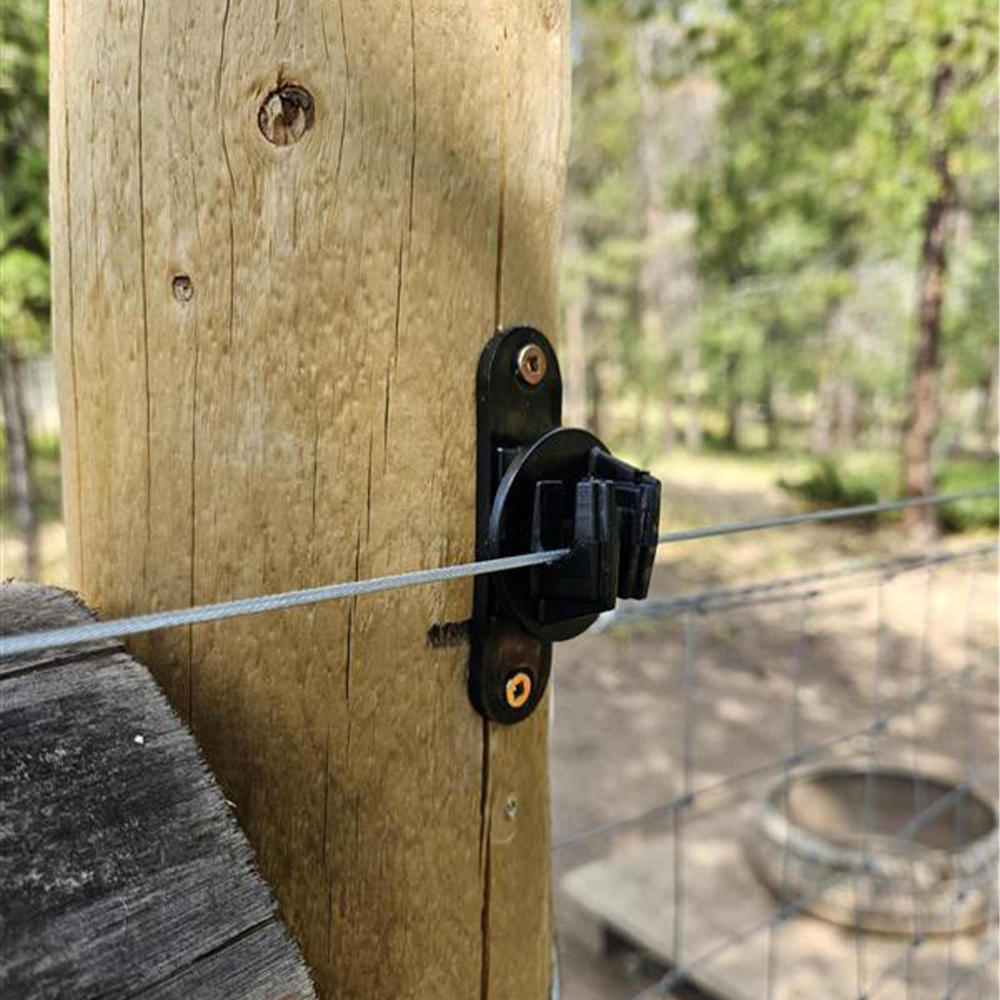
Nail-on insulators are simple insulators that are cheap and effective for use with cable on wood posts. One of the most commonly used insulators when a standoff is not required due to other fence factors.
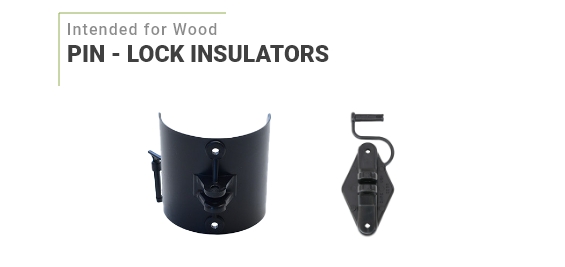
Pin-Lock insulators are among the most popular types due to their versatility and easy installation.
These insulators are designed with a small pin that locks the wire into place, making it very secure. They are great for high-tension fences as they keep the wire from slipping out of place and can withstand pressure from larger animals.
The Pin Lock Wrap-Around Insulator is great for use on corner posts.
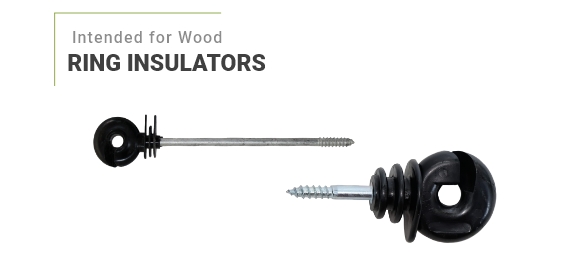
Ring insulators are simple, donut-shaped insulators for use with wood posts.
They come in handy when building fences with multiple strands, as they allow easy threading of wire through the post.
Ring insulators are designed to keep wire secure while providing the flexibility needed for a range of different applications. These are generally more affordable and offer good flexibility for different fence designs.
Insulating Access Points on Wood Fences

Insulated Gate Handles provide safe and necessary grip for opening and closing electric gates, preventing accidental shocks and allowing for easy access without compromising the fence’s charge. Made from durable, non-conductive materials, insulated gate handles are designed to withstand the elements and frequent handling.
We have two options for gate handles, a bungee gate option (Margo Electric Bungee Gate) that is easy to install and they come in a variety of length that can withstand high tension and Rub’R insulated gate handle.
To install a gate handle, you must install a Wood Post Gate Anchor to hold the insulated gate handle that closes the fence. The Wood Post Gate Anchor screws into the wooden fence post, one end of the Gate Anchor connects to the wire (to continue the circuit), the other end acts as a hook for an Rub’R insulated gate handle or Margo Electric Bungee Gate.
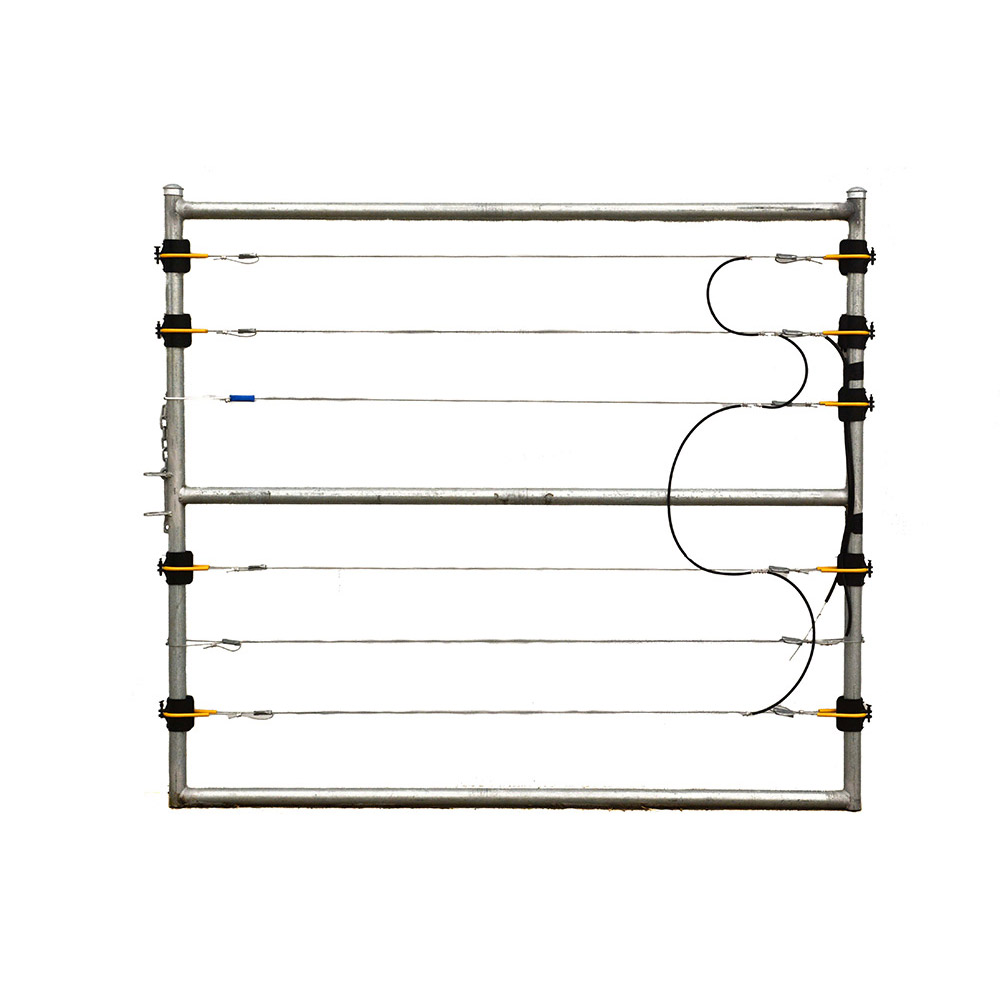
For larger operations or more intricate fencing solutions, we also carry electrified gates that can be ordered through talking with our team at info@margosupplies.com
Fibreglass Post Insulators

Fibreglass fence posts act as insulators because they are not made of conductive material. Because of this, we don’t need to insulate the wire through the use of insulators. However, we still need to secure the wire to the posts. There are two clip options to do this:
- If the fibreglass post has pre-drilled holes, 2″ U-Clips easily slide into those holes and are bent inward to secure the wire.
- If the fibreglass fence post does not have pre-drilled holes, you can use SnapMax clips, which can be installed manually or with pliers.
Insulating Access Points on Fibreglass Fences
For Fibreglass Fences, the best option for access is a Margo Electric Bungee Gate or using Rub’R Insulated Gate Handles.
The Gate below shows a Rub’R Insulated Gate Handle attached to the galvanized stranded steel using 5/64″ Aluminum Oval Crimp. Click on the green dots to see what each part of the fence is.
Wrap Around Insulators

Additionally, we carry wrap around insulators for areas of high traffic such as gates and fence ends. Wrap-around insulators allow the wire to pass through it so that the wire can be looped around bars and posts and be tied off using a Small Wire Rope Gripple.
In the image below, we used a Wrap-Around Insulator Tube (yellow) to connect two positive wires together with Nicropress Wire Taps.
The Dare Wrap-Around Insulator (black) is used to tie off the positive wire around the two posts using a Medium Wire Rope Gripple.
Chain Link & T-Post Insulators

Chain link insulators are designed to attach electric fencing to chain link fences, enabling the fence to carry an electric current without grounding. These insulators are typically made from durable, UV-resistant plastic and are easy to install, clipping securely onto the chain link mesh. They are versatile, working with various wire types, and are ideal for enhancing security or containing pets and wildlife and are also useful for cabin-wrap fences. Please keep in mind that chain link insulators may require regular maintenance to prevent grounding from vegetation or debris and are less suited for high-tension fencing applications.
T-post insulators come in various designs like screw-on, pin lock, and Snap-On, offering versatility and durability for temporary and permanent setups.
T-Post Insulators can also be compatible with round posts and U-Posts (check specific product listing for compatibility)
Available for various sizes of post diameters. Screw-on insulators, while secure and long-lasting, can be time-consuming to install, whereas Snap-On options are quicker but less durable under heavy strain.
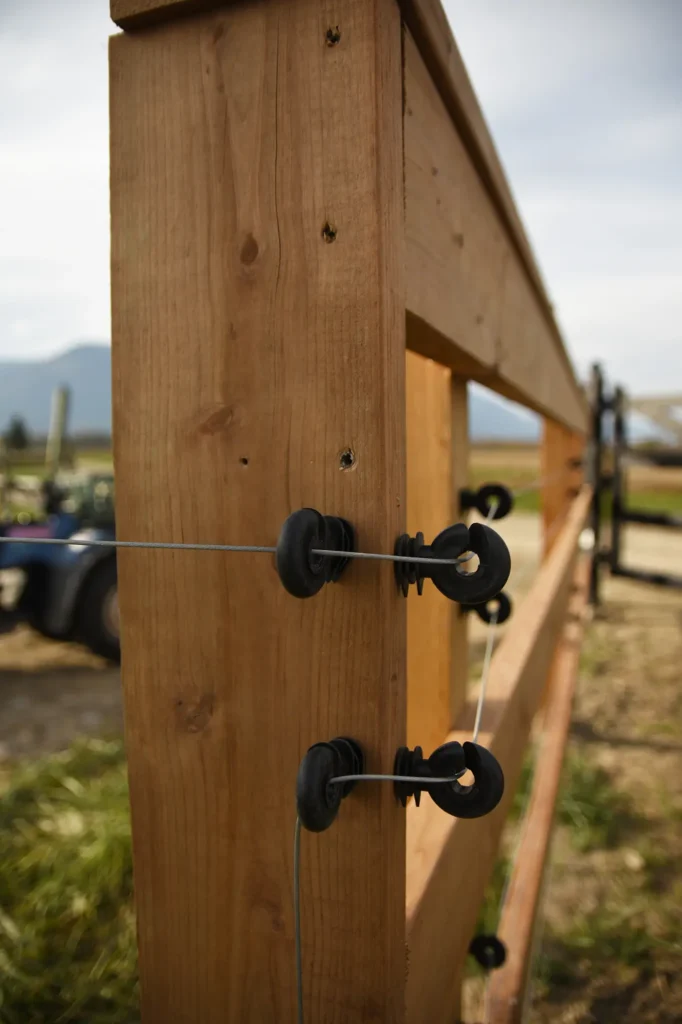
Introducing
Margo Fence Hub
We want to share our expertise with you. Margo Fence Hub is your resource for anything related to electric fencing. From planning to installation, we have compiled various educational resources to help you create an effective electric fence system.

